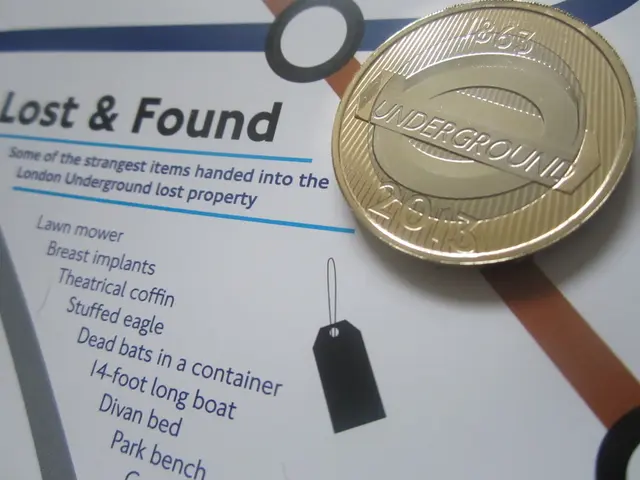Essential Role of Trust in Financial Exchanges
In the rapidly evolving digital and globalized economy, trust has emerged as a vital component, shaping economic resilience, growth, and cooperation at personal, organizational, and national levels. However, this trust landscape is undergoing profound disruptions and complexities, as explored in economic sociology.
Key Factors
1. **Digital Innovation and Online Environments** The digital revolution is transforming trust, breaking down spatial barriers and enabling public services to reach wider populations. This shift, as seen in the rise of digital government, can enhance institutional trust by promoting transparency and accessibility. Digital platforms and generative AI are shaping new forms of trust, such as trusting strangers in the sharing economy or AI outputs in daily decisions.
2. **Reputation and Perception Management** Online reputation has become a critical economic asset. Organisations that strategically cultivate and protect their digital image can build stronger customer trust, securing competitive advantages. A "confidence economy" is emerging, where value is tied to being perceived as trustworthy, necessitating proactive reputation management to influence economic outcomes like sales, investment, and talent acquisition.
3. **Complexity and System Interactions** Trust now operates within highly complex social, technological, and institutional systems influenced by rapid globalization and technological progress. Understanding trust's role in these interactions requires new frameworks, as trust dynamics occur at multiple levels, from interpersonal relationships to large institutions and complex digital systems.
Major Challenges
1. **Erosion of Traditional Institutional Trust** There is a growing distrust in formerly reliable institutions such as journalism, science, education, and government, exacerbated by digital misinformation and political polarization. Online platforms can enable the weaponization of skepticism through trolls, bots, or disinformation campaigns, undermining trust and fostering coalitions of distrust.
2. **Fluidity and Misdirected Trust** Trust has become more fluid and volatile in digital contexts, sometimes flowing towards untrustworthy actors while reliable ones are questioned, partly due to a lack of accountability and transparency online.
3. **Polarization and Social Fragmentation** Digital media amplify political and social divisions, damaging interpersonal trust within and across communities and sometimes even within families.
4. **Measurement and Standardization Difficulties** Developing standardized and interdisciplinary metrics to quantify online reputation and trust remains an open research challenge, which hampers precise economic assessment and policy interventions.
5. **Managing Complexity and Uncertainty** The operation of trust in rapidly evolving and complex systems, including AI and digital institutions, requires new theoretical and methodological approaches that can handle uncertainty and systemic risks.
Summary
Cultivating trust in the modern economy requires addressing:
- The disruptive effects of digital innovation on trust norms and practices, - The strategic management of digital reputations as economic assets, - The mitigation of distrust fueled by misinformation and polarization, - The development of new models and metrics to understand trust in complex digital and global systems, and - Enhancing institutional transparency and accountability through digital governance.
These insights highlight a critical tension in economic sociology: trust remains foundational for economic transactions and social cooperation, yet the digital and global transformations continually challenge traditional trust infrastructures, requiring adaptive strategies that combine social, technological, and institutional responses.
Understanding trust as both an enabler of economic exchange and a product of socio-economic intricacies empowers individuals, businesses, and nations to fortify trust within the globalized economy. Trust cultivates economic stability by embedding a behavioural norm that values consistency and integrity, making markets more predictable. Building trust in the modern economy requires innovative strategies and nimble policies that address its fluid nature.
- The government, in collaborating with business sectors, needs to implement digital governance strategies that improve transparency and accessibility to enhance public trust in institutions, especially in the face of digital innovation reshaping trust norms and practices.
- In the evolving digital economy, finance and business leaders must develop strategic reputation management techniques, converting their organizations' digital images into critical economic assets, ensuring competitive advantages and fostering customer trust.








